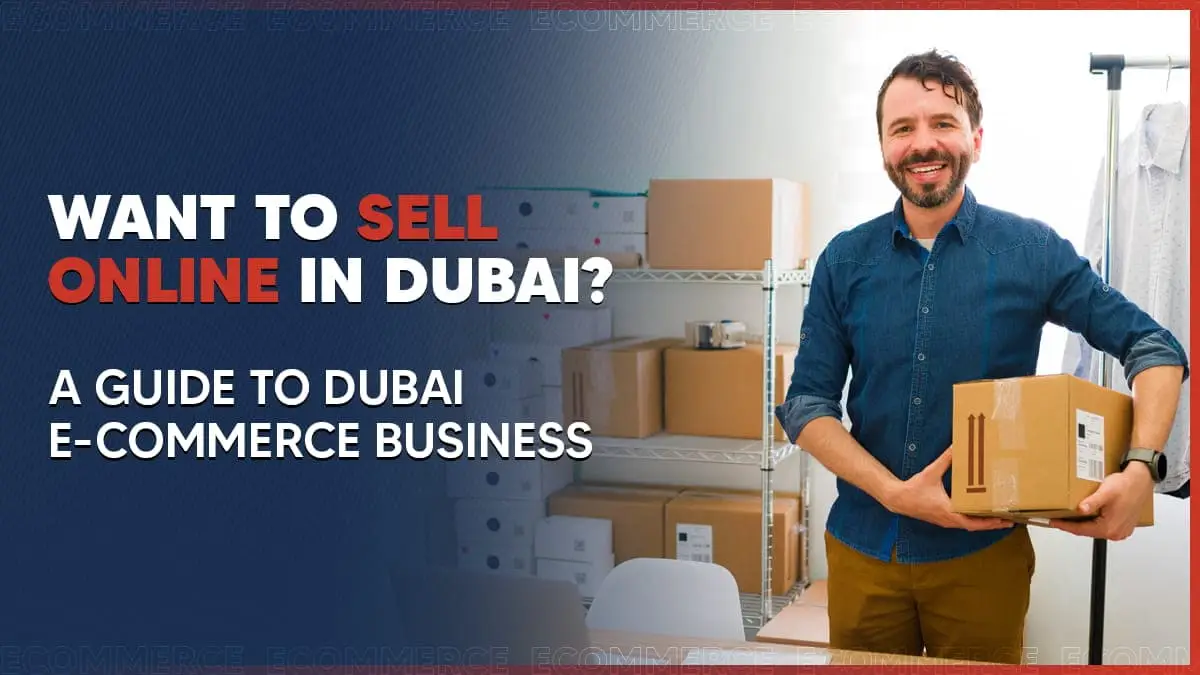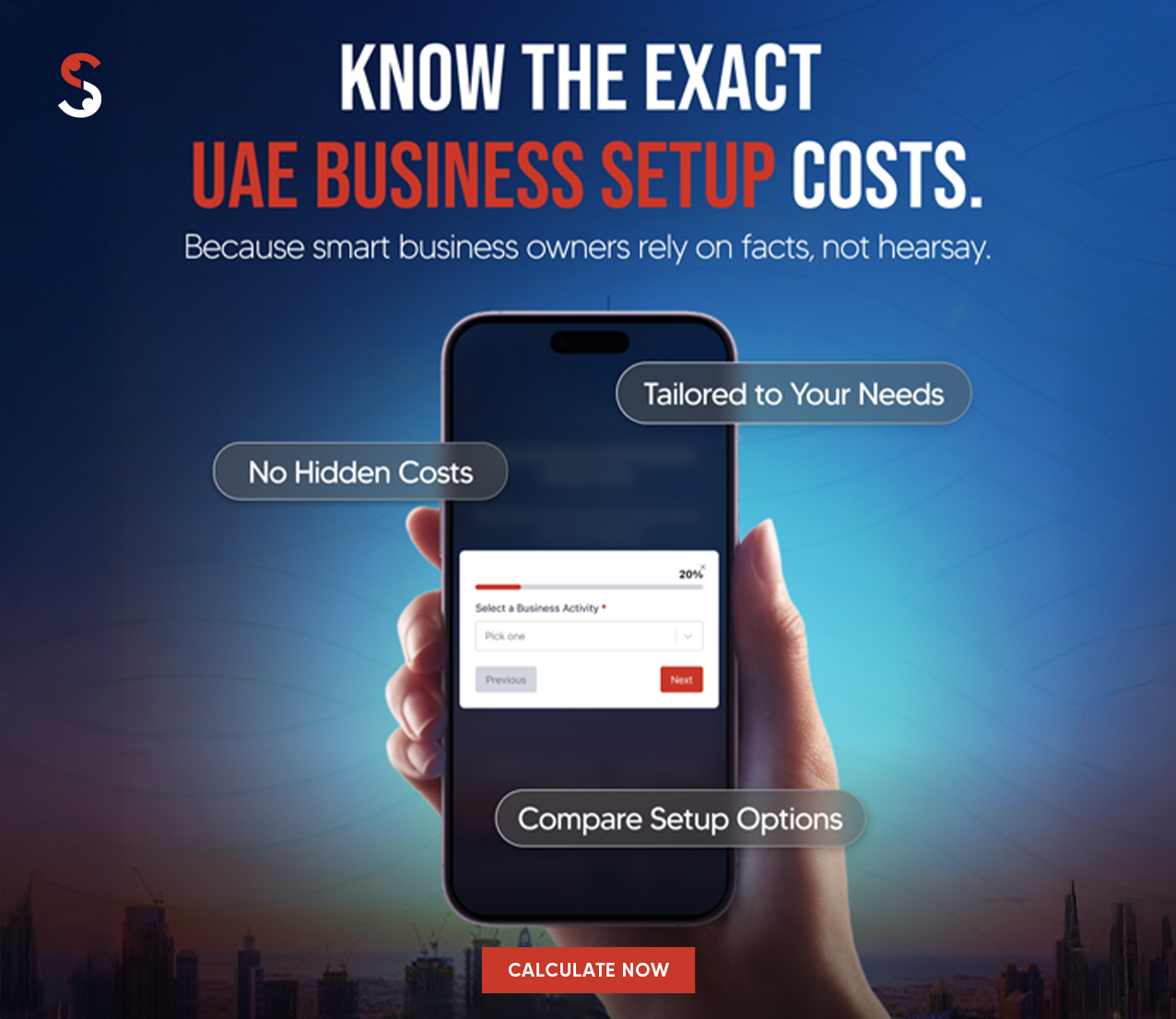Dubai has rapidly transformed itself into a global hub for business and innovation, and the eCommerce business in Dubai is no exception. With the rise of online shopping and digital transactions, the e-commerce landscape in Dubai has been growing rapidly. In fact, the UAE e-commerce market is expected to reach $17 billion by 2025.
Starting an eCommerce business in Dubai comes with plenty of benefits. From the ease of doing business in a tax-free environment to the strategic location that provides access to markets in the Middle East and beyond. Additionally, the city’s reputation for luxury and innovation creates a unique market for eCommerce businesses to thrive.
If you’re one of those entrepreneurs considering starting an E-commerce business in Dubai, you’ve come to the right place. Here we will explain everything on how to start an eCommerce business in Dubai, UAE. We will also help you understand costs, licensing, benefits, legal considerations and much more.
Why Start an E-commerce Business in Dubai?
Starting an e-commerce business in Dubai offers numerous benefits and opportunities, such as:
- Booming E-commerce Market: Dubai boasts a large and growing online consumer base which makes it an ideal market for e-commerce businesses.
- Business-Friendly Environment: The UAE government has implemented policies to support e-commerce, including streamlined regulations and infrastructure development.
- Custom Duties: Depending on the free zone, you might enjoy exemptions from import/export duties, reducing operational costs.
- Zero Income Tax: Dubai offers a tax-free corporate and personal income environment which allows businesses to retain more profits.
- Tech-Savvy Population: A large segment of the population is digitally inclined and comfortable with online transactions.
- World-Class Infrastructure: Advanced logistics, telecommunications, and payment systems support efficient e-commerce operations.
How to Start an E-commerce Business in Dubai, UAE
Starting an e-commerce business in Dubai can be an exciting venture. Here’s a step-by-step guide to help you get started:
1. Conduct Thorough Market Research and Business Planning
Before anything else, a solid foundation is key. This begins with identifying your target market and a specific niche within Dubai’s diverse and competitive e-commerce landscape. Conduct in-depth research to understand local consumer behaviour, preferences, and spending habits.
A well-structured business plan that outlines your value proposition, marketing strategy, and financial projections will be your roadmap to success and may be required for licensing and banking purposes.
2. Choose Your Business Location: Mainland vs. Free Zone
One of your first critical decisions is selecting the right legal territory for your business. A mainland company, licensed by the Department of Economic Development (DED), offers the advantage of being able to operate freely within the entire UAE market and internationally, providing greater flexibility in business activities.
For many e-commerce startups, however, a free zone company is the preferred choice. It offers significant benefits, including 100% foreign ownership, a tax-friendly environment with customs exemptions, and typically lower, more straightforward setup costs. Your choice will ultimately depend on your specific business model, target market, and long-term goals.
3. Selecting Your Business Structure
Once you’ve chosen a location, the next step is to decide on your business’s legal framework, such as an LLC or a Free Zone Establishment. This decision is vital as it impacts liability, ownership rules, and tax implications. It’s important to select a structure that aligns with your operational needs and future growth plans, ensuring it provides the right balance of protection and flexibility for your e-commerce venture.
4. Registering Your Business Name
Your business name is your brand’s identity, and in the UAE, it must comply with specific naming conventions. You will need to choose a unique and appropriate name and submit it for approval to the relevant authority—either the DED for a mainland company or the specific free zone authority where you are establishing your business. This step officially secures your trading name.
5. Securing Your Business License and Registration
The core of the setup process is applying for your e-commerce trade license. This involves submitting your application and the necessary documents, such as passport copies and a completed application form, to your chosen licensing authority. You must also ensure you obtain any additional permits required for your specific products or services, guaranteeing full regulatory compliance from the start.
6. Finalizing a Lease Agreement
Even for a digital storefront, a physical address is a mandatory requirement for company registration in Dubai. This can be a flexible desk in a free zone or a formal office or warehouse space. You will need to secure this location and obtain a tenancy contract (known as an Ejari for mainland companies), which formalizes your business address.
7. Opening a Corporate Bank Account
To manage your business finances professionally, you will need to open a corporate bank account with a UAE-based bank. This process requires providing the necessary documentation, including your trade license and shareholders’ passport copies. A corporate account is essential for processing customer payments, paying suppliers, and managing your company’s finances effectively.
8. Building Your Online Store
With the legal framework in place, you can focus on creating your digital presence. Choose an e-commerce platform like Shopify, Magento, or WooCommerce that aligns with your technical skills and budget. Design a user-friendly and visually appealing online store, and from the outset, optimize it for search engines (SEO) to improve your visibility and attract organic traffic.
9. Organizing Logistics and Fulfillment
A seamless customer experience relies on efficient logistics. You need to decide how you will manage inventory, process orders, and handle shipping. You can choose to manage fulfillment in-house or partner with a third-party logistics provider in the UAE who can store your products and manage packing and delivery, ensuring timely and reliable service to your customers.
10. Setting Up Payments and Financial Management
Integrate secure and trusted payment gateways into your online store to accept a wide range of payment methods, from major credit cards to digital wallets. In parallel, implement a robust financial management system, potentially using accounting software, to streamline your operations, track performance, and ensure you are prepared for VAT registration if your annual turnover exceeds the mandatory threshold.
11. Ensuring Ongoing Legal Compliance
Finally, operating your business requires ongoing adherence to Dubai’s e-commerce regulations and consumer protection laws. This includes complying with data privacy rules and, if applicable, registering for VAT with the Federal Tax Authority. Staying compliant is key to building a reputable and sustainable business.
Feeling overwhelmed by the steps to launch? Our dedicated specialists at Shuraa Business Setup are here to guide you through every requirement, ensuring a seamless and compliant company formation. Book a free consultation with our experts to create your personalized setup plan.
Requirements for Getting an E-commerce License in Dubai
The specific requirements for obtaining an e-commerce license in Dubai can vary depending on the type of license (mainland or free zone) and the nature of your business. However, here are few of the requirements:
- Passport copies of shareholders and managers
- Business plan outline
- Trade name reservation
- Visa and office space
- Local Sponsor (if required)
- E-trader License (most affordable option for small-scale e-commerce businesses)
How Much Does It Cost in Dubai to Start an E-Commerce Business?
There are different types of e-commerce licenses available in Dubai, each with its cost structure and associated costs
- E-trader License: This is the most affordable option, starting from AED 1,070. It’s suitable for small-scale e-commerce businesses with limited activities.
- Mainland Company License: Costs can range from AED 12,000 to AED 30,000 or more, depending on the business activities and location.
- Free Zone Company License: Typically starts from AED 5,750 but can vary depending on the free zone and the specific license package.
The cost of an e-commerce license in Dubai can vary significantly depending on several factors:
- Business Structure: Choosing between a mainland or free zone company will impact the overall cost.
- Business Activities: The specific products or services you offer can influence the license requirements and fees.
- Additional Fees: There might be additional fees for visa processing, office space, and other services.
- Business Size: Larger businesses may require additional licenses or permits, increasing costs.
- Location: Setting up in a prime location can lead to higher office rental costs.
To get an accurate estimate for your specific e-commerce business, it’s recommended to consult with our business setup consultant in Dubai. They can provide tailored advice based on your business requirements and help you choose the most cost-effective option.
Get Expert Advice at Every Step
Starting an e-commerce business in Dubai is a great opportunity for entrepreneurs worldwide. The city’s diverse and wealthy population, along with its focus on technology, makes it an ideal spot for e-commerce success. Setting up an e-commerce business in Dubai can seem complicated, but it doesn’t have to be. That’s where Shuraa Business Setup can help. We offer a range of services to make the process easier for you, including UAE company registration, licensing, documentation, PRO services, visa assistance, office space, and more.
When you partner with Shuraa Business Setup, you can focus on building your business while we handle the paperwork and regulations. Let us help you turn your e-commerce dream into reality in one of the world’s most exciting business hubs.
Ready to start your e-commerce journey in Dubai? Contact Shuraa Business Setup today at +971 44081900 or send a WhatsApp message at +971 50 777 5554 or mail your query to info@shuraa.com.
Frequently Asked Questions (FAQs)
1. Can an e-commerce business in the UAE be run fully remotely?
Yes, it’s possible to run an e-commerce business in the UAE fully remotely. Many free zone setups allow for remote management. However, regular visits might be required for certain legal and operational matters.
2. Can a business set up multiple stores online in the UAE using one trade license?
Yes, a single trade license can typically support multiple online stores under the same brand or umbrella. However, specific conditions might apply depending on the license type and free zone regulations.
3. Can I set up an e-commerce company in a free zone that sells its products in the UAE mainland?
Generally, no. Free zone companies are primarily restricted to operating within the free zone and engaging in export activities. Selling directly to consumers in the UAE mainland requires a mainland license. However, there might be exceptions or workarounds, so it’s crucial to consult with our business setup advisor.
4. Do companies need a physical office to run an e-commerce business in the UAE?
It depends. While some free zone setups allow for virtual offices, mainland companies usually require physical office space. The specific requirement depends on the chosen business structure and license type.
5. What are the essential permits and licenses required for an e-commerce business in Dubai?
The specific permits and licenses required depend on the business activities and chosen business structure. Generally, an e-commerce license, trade name registration, and potentially import/export licenses are essential. Consulting with a business setup advisor will provide accurate guidance.
Disclaimer: The information in this post is for general guidance only and may change due to updates in government policies or regulations.










